Mendeleev University of Chemical Technology of Russia: Statistics
Updated:


| Position | Category |
|---|---|
| #2830 of 14,131 | In the World |
| #852 of 2,785 | In Europe |
| #43 of 385 | In Russia |
| #18 of 67 | In Moscow |
| #431 of 1,015 | For Polymer science and Plastics engineering |
| Top50% | For 35 other topics |
Quick Review
- Acceptance rate
- 46%
- Type
- Non-profit
- Funding
- Public-private
partnership - Highest Degree
- Doctorate
- Website
- www.muctr.ru
- Languages
- Russian
Acceptance rate & Admissions
| Acceptance Rate | 46% |
|---|---|
| Admissions Requirements | Secondary school certificate (Attestat o srednem obrazovanii) or equivalent |
| Academic Calendar | September to June (September - January; February-June) |
We've calculated the 46% acceptance rate for Mendeleev University of Chemical Technology of Russia based on the ratio of admissions to applications and other circumstantial enrollment data. Treat this information as a rough guide and not as a definitive measure of your chances of admission. Different programs may have significantly varying admissions rates.
Research profile
Mendeleev University of Chemical Technology of Russia has published 8,723 scientific papers with 60,301 citations received. The research profile covers a range of fields, including Chemistry, Physics, Organic Chemistry, Engineering, Materials Science, Biology, Quantum and Particle physics, Environmental Science, Metallurgical Engineering, and Biochemistry.
Mendeleev University of Chemical Technology of Russia majors
by publication & citation count
Annual publication & citation counts
| Year | Publications | Citations |
|---|---|---|
| 1992 | 31 | 74 |
| 1993 | 59 | 92 |
| 1994 | 51 | 83 |
| 1995 | 54 | 120 |
| 1996 | 69 | 148 |
| 1997 | 70 | 122 |
| 1998 | 61 | 127 |
| 1999 | 81 | 172 |
| 2000 | 88 | 189 |
| 2001 | 147 | 221 |
| 2002 | 116 | 276 |
| 2003 | 131 | 333 |
| 2004 | 109 | 322 |
| 2005 | 146 | 425 |
| 2006 | 145 | 618 |
| 2007 | 182 | 645 |
| 2008 | 183 | 709 |
| 2009 | 163 | 783 |
| 2010 | 163 | 939 |
| 2011 | 170 | 1003 |
| 2012 | 161 | 1129 |
| 2013 | 204 | 1333 |
| 2014 | 209 | 1534 |
| 2015 | 248 | 1599 |
| 2016 | 289 | 1875 |
| 2017 | 377 | 2202 |
| 2018 | 464 | 2681 |
| 2019 | 539 | 3867 |
| 2020 | 676 | 5311 |
| 2021 | 709 | 6879 |
| 2022 | 623 | 7080 |
| 2023 | 642 | 8334 |
| 2024 | 385 | 7888 |
Tuition
The tuition table for Mendeleev University of Chemical Technology of Russia gives an overview of costs but prices are approximate and subject to change and don't include accommodation, textbooks, or living expenses. The costs of programs might differ significantly for local and international students. The only source of truth for current numbers is the university's official website.
| Program | Tuition Cost (per year) |
|---|---|
| Bachelor's Degree | 300,000 RUB |
| Master's Degree | 350,000 RUB |
| PhD Program | 400,000 RUB |
The currency used is Russian Ruble (RUB).
The Mendeleev University of Chemical Technology of Russia has on-campus housing.
Programs and Degrees
The table below displays academic fields with programs and courses that lead to Bachelor's, Master's, and Doctorate degrees offered by Mendeleev University of Chemical Technology of Russia.
Note that the table provides a general overview and might not cover all the specific majors available at the university. Always visit the university's website for the most up-to-date information on the programs offered.
| Programs | Bachelor | Master | Doctoral |
|---|---|---|---|
| Art & Design | No | No | No |
| Biology | No | No | No |
| Business | Yes | Yes | Yes |
| Chemistry | Yes | Yes | Yes |
| Computer Science | Yes | Yes | Yes |
| Economics | Yes | Yes | Yes |
| Engineering | Yes | Yes | Yes |
| Environmental Science | Yes | Yes | Yes |
| Liberal Arts & Social Sciences | No | No | No |
| Mathematics | Yes | Yes | Yes |
| Medicine | No | No | No |
| Physics | Yes | Yes | Yes |
| Psychology | No | No | No |
| Bakalavr | Biotechnology, Chemical Engineering, Chemistry, Computer Engineering, Environmental Engineering, Environmental Studies, Information Technology, Linguistics, Management, Materials Engineering, Nanotechnology |
|---|---|
| Diplom Spetsialista | Chemical Engineering, Chemistry |
| Magistr | Administration, Biotechnology, Ceramics and Glass Technology, Chemistry, Environmental Engineering, Environmental Management, Information Management, Information Technology, Linguistics, Management, Materials Engineering, Measurement and Precision Engineering, Nanotechnology |
| Kandidat Nauk | Biological and Life Sciences, Chemical Engineering, Chemistry, Computer Engineering, Environmental Engineering, Environmental Management, Nanotechnology, Telecommunications Engineering |
Mendeleev University of Chemical Technology of Russia alumni
-
Valery Legasov
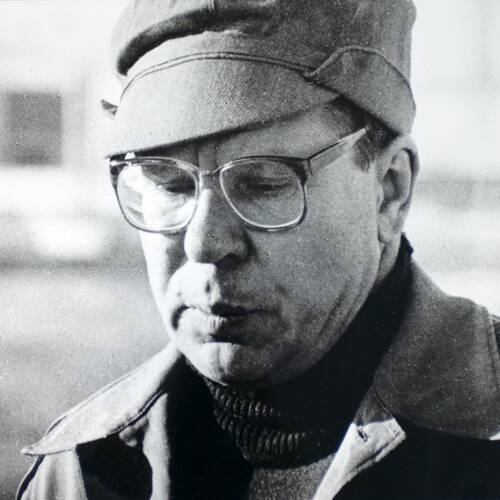
- Enrolled in the Mendeleev University of Chemical Technology of Russia
- In 1961 graduated with bachelor's degree
- Occupations
- university teacherChernobyl liquidatorphysicistchemist
- Biography
-
Valery Alekseyevich Legasov was a Soviet inorganic chemist and a member of the Academy of Sciences of the Soviet Union. He is primarily known for his efforts to contain the 1986 Chernobyl disaster. Legasov also presented the findings of an investigation to the International Atomic Energy Agency at the United Nations Office at Vienna, detailing the actions and circumstances that led to the explosion of Reactor No. 4 at the Chernobyl Nuclear Power Plant.
-
Mikhail Khodorkovsky

- Occupations
- entrepreneurphilanthropist
- Biography
-
Mikhail Borisovich Khodorkovsky, sometimes known by his initials MBK, is an exiled Russian businessman, oligarch, and opposition activist, now residing in London. In 2003, Khodorkovsky was believed to be the wealthiest man in Russia, with a fortune estimated to be worth $15 billion, and was ranked 16th on Forbes list of billionaires. He had worked his way up the Komsomol apparatus, during the Soviet years, and started several businesses during the period of glasnost and perestroika in the late 1980s. In 1989, he became Chairman of the Board of Bank Menatep, which he founded. After the dissolution of the Soviet Union, in the mid-1990s, he accumulated considerable wealth by obtaining control of a number of Siberian oil fields unified under the name Yukos, one of the major companies to emerge from the privatization of state assets during the 1990s (a scheme known as "Loans for Shares").
-
Andrey Kolmogorov
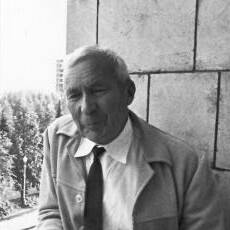
- Occupations
- statisticianuniversity teacherphysicistcomputer scientistmathematician
- Biography
-
Andrey Nikolaevich Kolmogorov was a Soviet mathematician who played a central role in the creation of modern probability theory. He also contributed to the mathematics of topology, intuitionistic logic, turbulence, classical mechanics, algorithmic information theory and computational complexity.
-
Yuriy Boyko
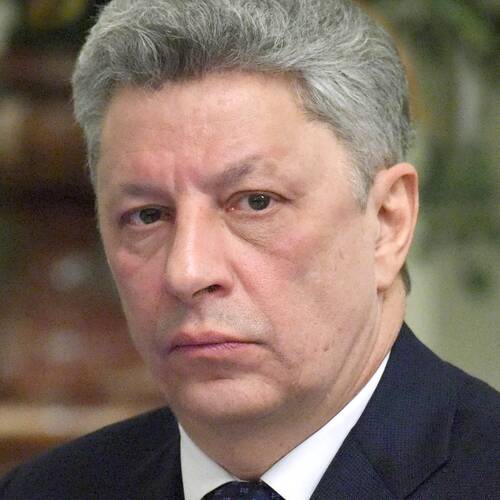
- Enrolled in the Mendeleev University of Chemical Technology of Russia
- Studied in 1981
- Occupations
- politician
- Biography
-
Yuriy Anatoliyovych Boyko is a Ukrainian politician who served as one of the Vice Prime Ministers of Ukraine between 2012 and 2014, as well as the Minister of Energy from 2006 to 2007 and again from 2010 to 2012. Other than during stint as Vice Prime Minister, he has continuously served as a Member of the Verkhovna Rada since 2007. Boyko ran for President in the March 2019 election, winning many districts in the southeast of the country but narrowly missing qualification for the second round by 4.28% of the votes.
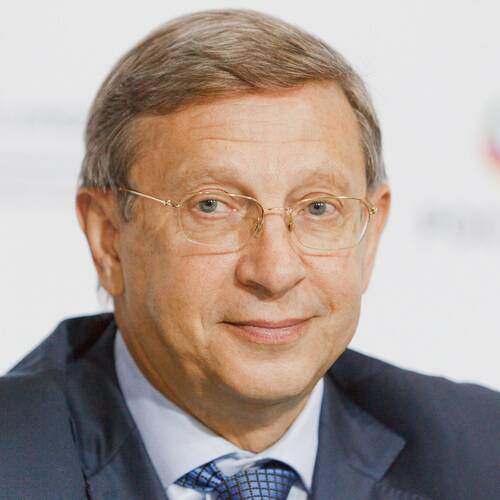
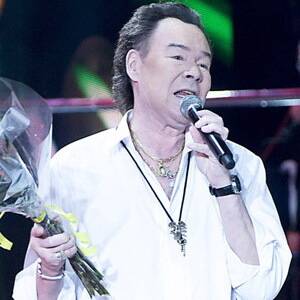
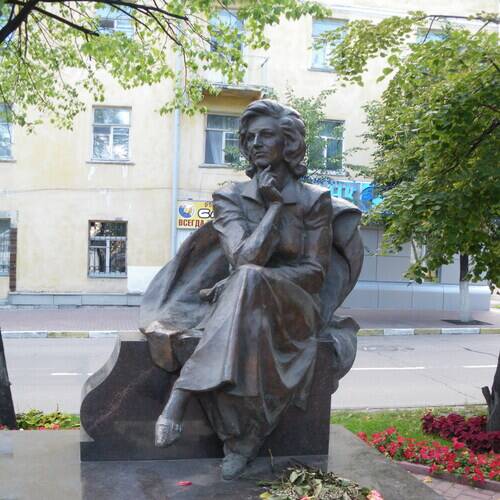
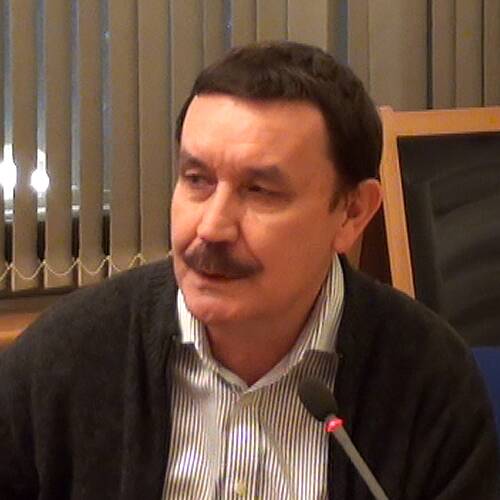

Mendeleev University of Chemical Technology of Russia faculties and divisions
| Faculty : Biotechnology and Industrial Ecology | Biotechnology, Ecology, Environmental Management |
|---|---|
| Faculty : Chemical and Pharmaceutical Technologies and Biomedical Products | Biochemistry, Chemistry, Organic Chemistry, Pharmacology |
| Faculty : Chemical Engineering | Chemical Engineering, Chemistry, Environmental Engineering |
| Faculty : Digital Technology and Chemical Engineering | Chemical Engineering, Chemistry, Computer Engineering, Engineering Drawing and Design, Information Technology |
| Faculty : Humanities | History, Linguistics, Russian, Sports |
| Faculty : Natural Sciences | Chemistry, Mathematics, Physics |
| Faculty : Petroleum Chemistry and Polymer Materials | Chemistry, Organic Chemistry, Polymer and Plastics Technology |
| Faculty : Technology of Inorganic Substances and High Temperature Materials | Ceramics and Glass Technology, Chemistry, Inorganic Chemistry, Materials Engineering |
General information
| Alternative names | MUCTR Российский химико-технологический университет |
|---|---|
| Founded | 1898 |
| Accreditation | Federal Service for Supervision in Education and Science (Rosobrnadzor) |
Location and contacts
| Address | pl. Mijusskaja, 9 Moskva, 125047 Russia |
|---|---|
| City population | 13,149,000 |

